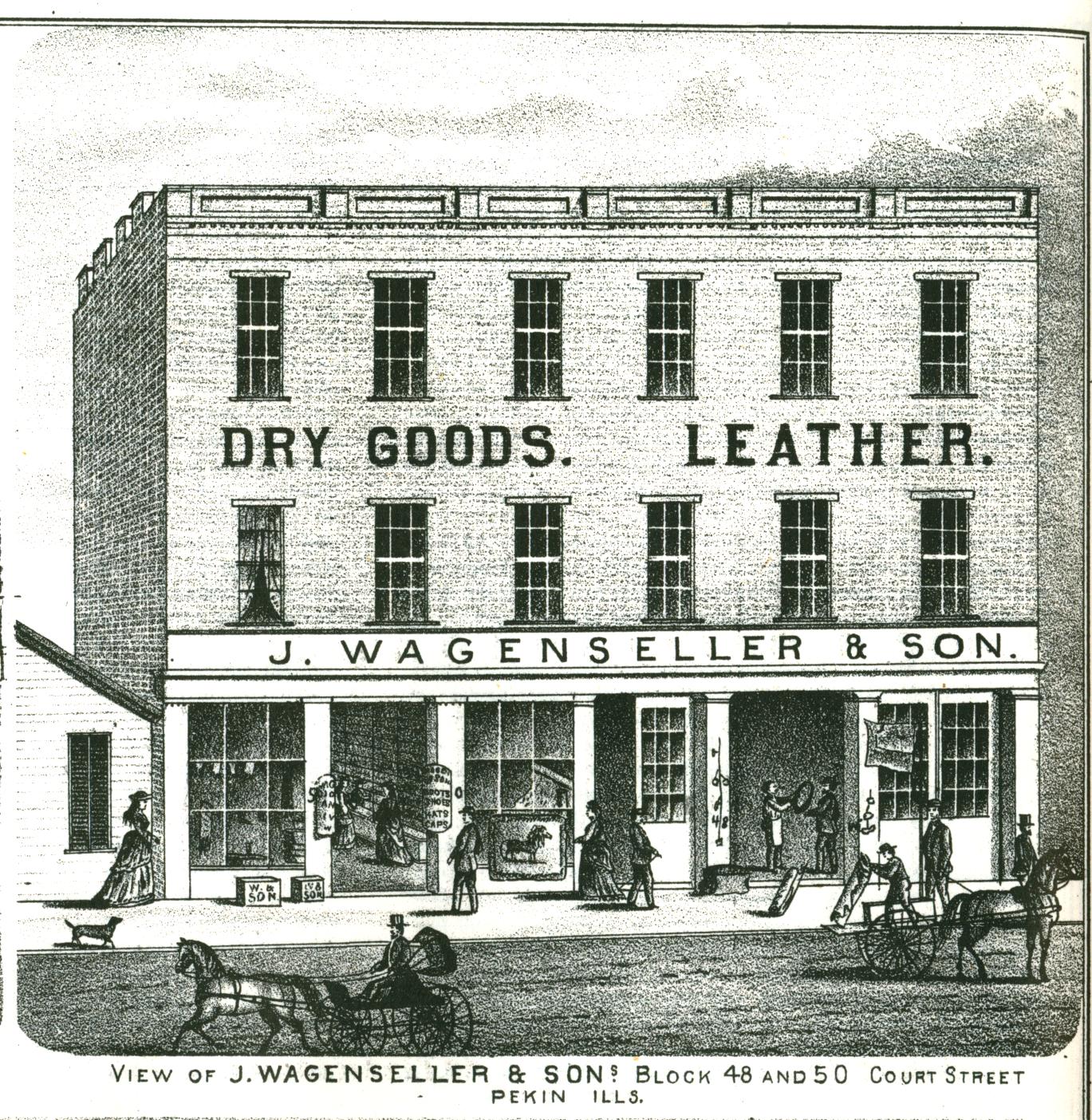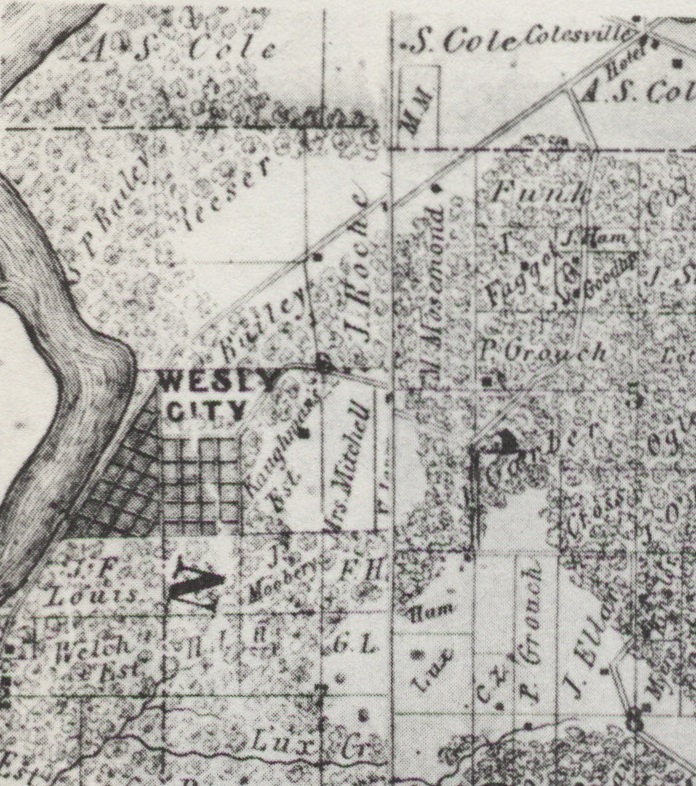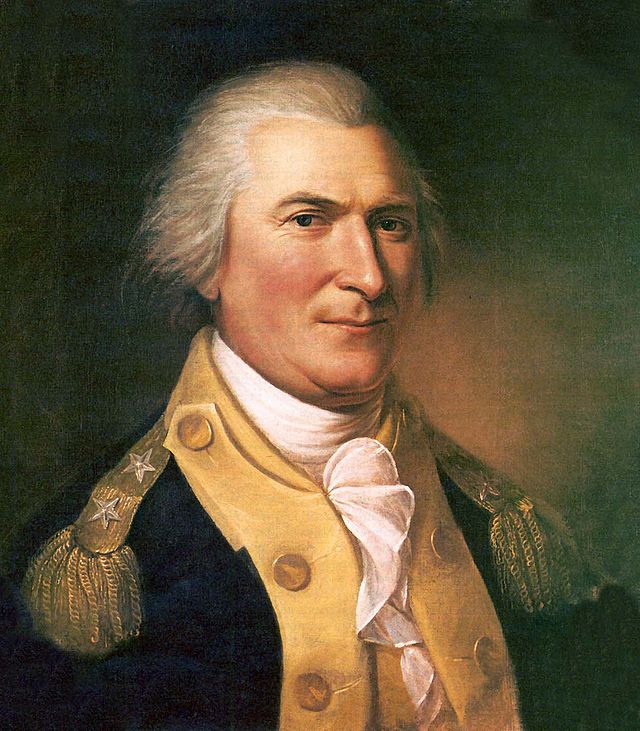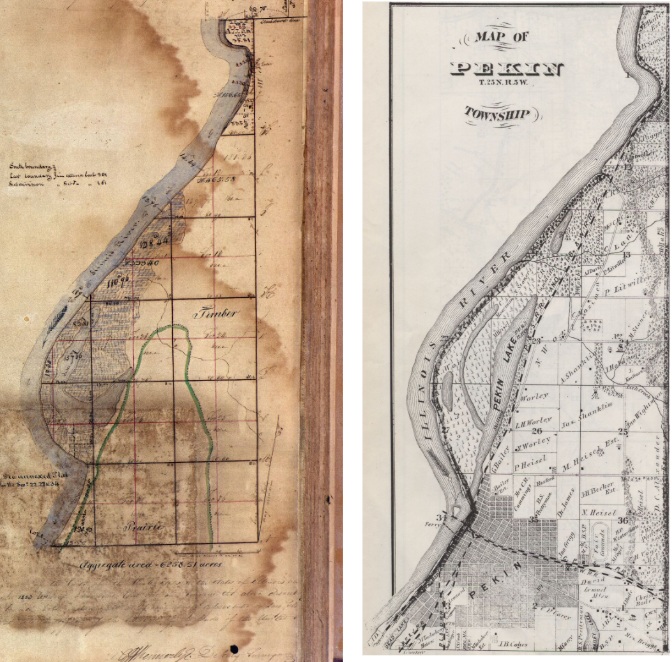This is a reprint of a “From the Local History Room” column that first appeared in March 2015 before the launch of this weblog.
Among the biographies of the Old Settlers of Tazewell County featured in the 1873 “Atlas Map of Tazewell County” is an extended account of the life of a Tazewell pioneer named Joshua Wagenseller. Joshua’s family is commemorated today in the name of Wagonseller Road south of Pekin. Following are excerpts of Joshua’s biographical essay — omitting most of the remarkably florid prose in which this and the other biographies in the 1873 “Atlas Map” were written.
“Joshua Wagenseller is a native of Montgomery county, Pennsylvania, born July 5, 1813. He is the fifth child of Peter and Susanna (Longaker) Wagenseller. Mr. W., father of Joshua, was a native of Montgomery county, Pa., and his parents were of German descent. He followed farming as the vocation of his life. He emigrated to Ohio about the year 1832, and settled in Columbus, Franklin county, where he resided until his death, which occurred about two years after. His wife, mother of Joshua, subsequently removed to Pekin, Ill., terminating a useful life in 1866, while residing with her son Joshua. . . .
“The subject of this biography acquired his early culture mostly at Green Tree Seminary, in his native country, where he acquired a knowledge of the rudiments of a good, practical, business education. His first business engagement after completing his course was in a wholesale dry goods house in the city of Philadelphia, where he obtained a position as bookkeeper and accountant. The next business engagement was with his brother in Union county, Pa., where he remained about two years. We would remark that these experiences of his early life laid the foundation for that successful business career which in after life distinguished him in his subsequent mercantile transactions.
“He was now of age, and, looking westward for a richer field in which to enlarge and develop his energies, he went to Columbus, Ohio, and erected a saw mill on Elm creek, and was engaged in the manufacture of lumber about three years, or until the spring of 1837, when he removed to Illinois, and settled in Pekin, Tazewell county. . . .
“Mr. Wagenseller formed a partnership with his brother Benjamin, and, under the firm name of ‘B. & J. Wagenseller,’ he began, in Pekin, a course of mercantile life, which business he has since followed. This original firm ceased in 1844, by the death of his brother. They went through the financial crash of 1840 unscathed. . . . Since the dissolution of this firm, Mr. Wagenseller has been at the head of subsequent business houses, and although he has been identified with other business largely in life, merchandising has been his leading vocation. He has been engaged in milling covering an aggregate of nearly ten years. He rebuilt and owned the first good grist mill propelled by water in Tazewell county. . . .

“Mr. Wagenseller was married May 7, 1840, to Miss Harriet, daughter of Henry and Naomi Rupert, of Pekin, — formerly of Virginia. As the fruits of this union, they have had a family of six children. Two of his sons are now engaged with him in his present mercantile operations. Two of his sons are married, and all of his family are at this time (1873) residents of Pekin. Mr. Wagenseller and wife are both members of the Congregational Church of Pekin, and are among the original members of that church.
“Mr. W., in addition to his mercantile business, owns and carries on a farm near Pekin. He also owns a large area of land located in Iowa. . . . Politically, in early life, Mr. Wagenseller became a whig. His first vote for president was cast for Gen. Wm. H. Harrison, in 1836. He was anti-slavery in his sentiments, and the following circumstance, as related by himself, opened his eyes to the inhumanity of the slave traffic. While on a trip to New Orleans, on a steamboat, a slave owner came on board with a woman and six children. He witnessed the revolting spectacle of a slave girl sold on the block. ‘The scene,’ said Mr. W., ‘made me ever afterward an abolitionist.’ On the disorganization of the whig party, in 1856, he became identified with the republican party, to which he has since been strongly attached. He voted twice for the immortal Lincoln and twice for the valiant Grant, who so ably assisted in firmly planting the stars and stripes on the bulwark of American freedom. . . .
“Mr. Wagenseller has been required to represent the interests of his ward for several years in the common council of the city, and was vice president of the Peoria, Pekin, & Jacksonville Railroad Company. He has been one of the active, public-spirited citizens of Pekin for thirty-six years.”









